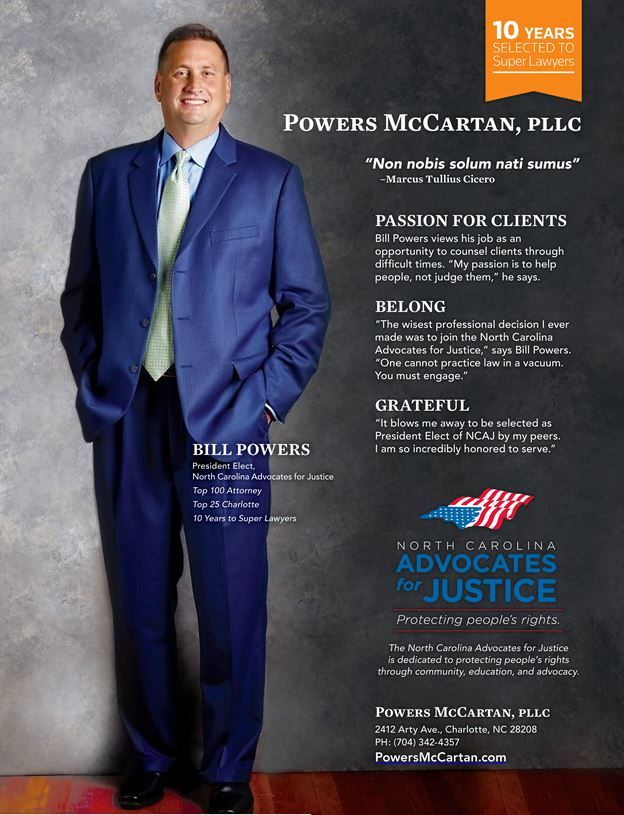What are the Factors Considered in Punishments and Sentencing in DWI Charges?
- What are Grossly Aggravating Factor(s)?
- What are Aggravating Factors?

Powers Law Firm PA, a Charlotte-Metro law firm, recently received notice two attorneys for the firm have been included in 2016 North Carolina Super Lawyers Magazine. Bill Powers Included on the 2016 “Top 100” North Carolina Super Lawyers List.

Death by Vehicle Blood Testing in North Carolina involves a certain, although limited, amount of discretion by Law Enforcement. There are circumstances where blood sampling may be in addition to standard breath-testing on the EC/IR II.
A combination of breath, blood and urine samples may be obtained in appropriate legal circumstances, even if duplicative in nature and would therefore be subject to administrative licensing consequences for failing to comply.
N.C.G.S. 20-141.1 offenses include:
One of the best parts of my job is teaching Continuing Legal Education. Teaching is a great way to learn.
Frankly, standing in front of a group of lawyers, prosecutors, judges or law enforcement can be more than a bit harrowing. Consider the fact that just about everyone listening-in has a substantial knowledge base. . .and well, some might say, a disposition towards critical thinking.
If you’ve been in District Court in North Carolina, most likely you’ve heard mention of two relatively recent cases that the Courts have been bantering about.
“Have you heard about Townsend? That’s it, there is no such thing as PC in North Carolina. Smell of booze is enough to arrest.” Shortly thereafter someone brings up, “Yes, but what about Overocker? That’s a published decision too, right?”
Modified Transcript of “Required to Talk To Police” for the Hearing Impaired:
We have handled very serious cases in North Carolina for quite some time. We may get a call during an active investigation, in a panic, from somebody wondering and asking, “Should I talk to the police?” They want to do a debriefing. They want to record a statement.
See Related: Are Miranda Rights Required
North Carolina Rules of Evidence
Modified Transcript of “DWI Burdens of Proof” for Hearing Impaired:
The third burden of proof that the state has to satisfy when we’re speaking about a prosecution for DWI, I’m just going to refer to as criminal procedure at large. When we’re talking about reasonable suspicion, typically we’re talking about the stop. When we’re talking about probable cause, we’re typically just talking about the arrest. Criminal procedure at large we’re talking about the process as a whole, but not from a factual end necessarily, but from a procedural one.